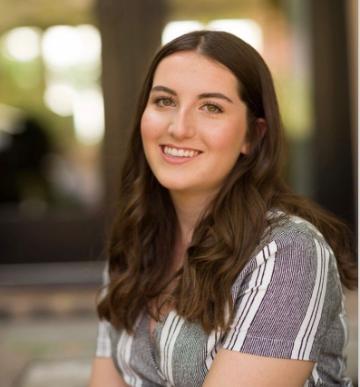Our Research
Ongoing Projects
The Intersection of Artificial Intelligence with Business Ethics and Human Rights
One of the most important issues arising from the rise of AI is algorithmic fairness. The BEHR Lab has been focusing on this issue for a number of years, beginning with Prof. Santoro’s collaboration with data scientists and public a health expert on the pathbreaking and award-winning study “Overbooked and Overlooked” which tackled the problem of racial bias in medical appointment scheduling.
The current work of the lab is focused on finding the right balance in correcting algorithmic bias. We are developing a case study about lessons that can be learned from how Google’s Gemini AI image generation algorithm overcorrected for racial and gender bias.
Professor Santorro is co-editing a Special Issue of Business and Human Rights Quarterly with the University of Utah's Erika George.
The Management Science Behind Diversity, Equity, and Inclusion
Have you ever wondered what research tells us about the relationship between diversity and performance? Or how important inclusion is to achieving the promise of diversity? For the answers to these and other questions about the impacts of racial, gender, and other forms of diversity, Prof. Santoro and MBA student Karin Dun, assisted by a group of outstanding Lab Fellows, surveyed the last ten years of management research on the impact of diversity on team and individual performance, financial results, and other ways of measuring organizational excellence. Their work was published in Oxford Bibliographies in Management in March of 2024. The BEHR Lab continues to keep this work up to date with a view to updating the article in 2026.
Access of Underrepresented Minorities to Learning Accommodations in Educational Settings
Under the direction of Senior Fellow Melissa Thiriez, The BEHR Lab is investigating why underrepresented minorities do not have adequate access to learning accommodations for classroom notetaking and exam taking conditions.
Ethical and Values-Based Leadership in Community Health Centers and Other Local Settings
Faculty Fellows Sarah Cabral, Chan Thai and Sherry Wong are working on a series of case studies about innovation in community health care centers serving underrepresented minorities and the extraordinary individuals who lead these underappreciated health care providers. Drs. Cabral, Thai, and Wong are conducting research about community health care centers serving the African ancestry, Hispanic, and Vietnamese communities in California.
The Fairness of CEO Pay
The Dodd-Frank Act, passed in 2010, included numerous groundbreaking compensation transparency provisions, but despite the substantial potential for reform afforded by these new laws, the rich repository of new data has yet to be utilized to its full potential. Following its implementation in 2018, companies are now required to disclose the multiple of CEO earnings over the median employee in proxy statements to annual filings. However, this data has done little to curb substantial growth in executive compensation and its significance has been largely ignored in academic and legal realms. Prof. Santoro and Lab Fellow Eric Blair use newly available data made possible by the Dodd-Frank Act to conduct a fairness analysis and reach the conclusion substantiating the widespread public intuition that CEOs are overpaid and that their excessively lucrative incomes come at the direct expense of the welfare of workers and consumers. In June 2024, their work was published in the Loyola University of Chicago Journal of Regulatory Compliance. The BEHR Lab continues to conduct research on the fairness of CEO compensation.
Impact of Human Rights and Company Compliance
In recent years, human rights responsibilities for companies have been transformed dramatically from ethical to strict legal obligations. The most prominent example of this has been the European Corporate Sustainability Due Diligence Directive, but other national and multistate regulations are burgeoning. These developments create a bewildering array for companies which need to identify what laws and regulations they need to comply with and how to assess and measure their compliance. The BEHR Lab is conducting a study of these various laws and regulations and developing a series of potential models for assessment and compliance.
Past Projects
Fellows: Justin Armanino, Camille Spence
Justin Armanino on McKinsey

My name is Justin Armanino, and I am a sophomore at Santa Clara University studying Finance. I have always had a passion for social justice, and when Professor Santoro reached out with the opportunity to pursue business ethics research with him as a fellow for the MSBEHR, I knew I couldn’t turn it down.
I am currently working with Camille Spence on researching McKinsey & Company’s involvement in the opioid crisis with Purdue Pharma, since they consulted Purdue Pharma on how to increase profits for their OxyContin sales. So far, Camille and I have spent our time researching relevant articles, reading through emails between Purdue executives and McKinsey consultants, and determining what legal liabilities or ethical responsibilities that McKinsey didn’t abide by.
Through our research, we have confirmed a clear trend of unethical behavior by McKinsey; we have also determined that their behavior and involvement in the opioid crisis is comparable to that of Purdue Pharma. McKinsey & Co.’s plans to increase the sales of Oxycontin for Purdue Pharma despite knowing the risk that OxyContin posed in terms of addiction and death are purely unethical. McKinsey chose to disregard the welfare of others to increase its clients’ profits, which uses the intended buyers as a means to an end.
Our research has opened my eyes to the lack of accountability in the pharmaceutical industry as well as the consulting industry, and as someone who hopes to one day be a consultant, it has made me aware of the moral ambiguity that seems to be deeply rooted in corporate consulting.
Camille Spence on McKinsey

My name is Camille Spence, and I'm a Sophomore in the Leavey School of Business studying Finance. I'm thrilled to be working alongside Michael Santoro and my team to carry out research on business ethics. I think understanding and implementing a mindset of corporate social responsibility is an integral part of our studies at Santa Clara University and will ensure our future career success.
I am currently working alongside Justin Armanino, researching McKinsey & Company’s role in perpetuating the opioid crisis through consulting with Purdue Pharma on how to increase sales of their drug, OxyContin. We have conducted our research through reading relevant articles and producing document evidence to determine whether McKinsey & Co. failed to ensure their ethical responsibilities and legal compliance. Further, we have compared the McKinsey case to past legal case studies, such as the Ford Pinto case, to examine overlaps in unethical behavior.
Our research illustrates a clear trend towards valuing profit over human welfare, as both the McKinsey and Ford Pinto cases have demonstrated planned protections such as rebate plans for overdoses against known potential damages and liabilities, thus proving the companies had definitely realized the harmful implications of their actions.
Discussions about Justin and I’s findings with Professor Santoro have enlightened me on the lack of ethics still greatly present in many of our major business structures and sectors. I hope by furthering my research, I will continue to understand ways in which company culture and management structures can positively impact corporate ethical behavior.
Fellow: Caroline Glaser
Caroline Glaser on COVID-19 Vaccine Access

I am currently a Sophomore at Santa Clara University studying economics in the Leavey School of Business. I joined the MSBHER because I have always been extremely fascinated by the intersection of business and ethics. I deeply value being able to continue to develop my understanding of business ethics through examining current issues.
Thus far in my research I have primarily been compiling information about the distribution of the various COVID-19 vaccines. Most recently, I have been examining the safety and efficacy of the different vaccines compared to which countries are using those vaccines. This research has helped demonstrate the reality of how overlooked the global south has been in the efforts to end this pandemic. I have been researching the impact that the lack of equitable distribution of COVID-19 vaccines is having and will continue to have on the global south. I find this issue extremely interesting as it provides me with a real-life example of the conflicts which can occur between a company’s desire for profit and their corporate social responsibility.
Additionally, examining the issue of vaccine distribution through the lens of economics has demonstrated the inequities that demand driven global markets exacerbate when lives are on the line. Because of wealthy countries hoarding vaccine supply, effective vaccines are scarce for those who are most vulnerable in the global south. The most significant thing this research has taught me is how much the global south is often ignored and overlooked by the global north. In the instance of COVID-19 vaccines, even when the ethics are so clear and the plan to help the global south would cost wealthy countries very little, there is still little action being taken. Overall, this research has helped me gain a better understanding of the complex relationships between global economics and human rights. I plan to continue researching this issue as the situation continues to develop.
Fellow: Taylor Kim
Taylor Kim on Roots South Bay

I got to work with Brooke on creating tweets to promote Professor Michael Santoro's case study that discussed the advent of the Roots Community Health Center in the South Bay. This topic was a super interesting way to dive into the ethics of healthcare and social justice; as an Environmental Studies double major, I tend to focus on racial equity in the context of environmental justice, so it was exciting to look into this issue from a new field.
My work focused on how Roots has been successful within the communities of color in Oakland and the South Bay, particularly through their use of "navigators" who help patients overcome language and cultural barriers by attending appointments with them. One of the most striking things Professor Santoro's case study found was how these navigators were treated at the appointments: many of them are also people of color, and sometimes they are not differentiated from their clients and thus experience the same disgraceful treatment from medical personnel based on racial and cultural assumptions.
This case was very eye-opening to me, and I appreciate that I have a more interdisciplinary understanding of racial inequities within healthcare through doing this project. This is a topic I highly recommend learning about, even if you are like me and don't have much background in the medical field.
Fellow: Brooke Eldridge
Brooke Eldridge on Lab Development and Outreach

As a sophomore marketing major also studying retail management and studio art, I strive to work in brand development as I begin my professional career. From copywriting, to design, to any form of presentations, my passion for storytelling takes a lot of forms. Translating my interests into working with Professor Santoro on the MSBEHR, we decided that I would concentrate on building the lab’s structure while also working to promote Professor Santoro’s current research.
Though I also spent a bit of time on the Roots South Bay Case alongside Taylor, I have mainly focused on establishing the MSBEHR website and outlining social media strategies for the lab and Professor Santoro’s research. With Professor Santoro and the other fellows, I helped direct Twitter campaigns for each of the main research topics within the lab. Furthermore, I developed the lab’s website and structured research summaries.
I have thoroughly enjoyed the work I have done for the MSBEHR. As an undergraduate business student mainly still working through gen eds, I have a clear passion for business ethics and corporate responsibility but lack an in-class outlet to explore my interest. Being the managing director has encouraged me to hone in on each of my interests in one setting. Working alongside Professor Santoro and the other fellows, I have also gotten the opportunity to work closely with current business and human rights issues. Furthermore, I’m constantly learning more about the rich community of professional academics across the globe that make up the business and human rights community.
